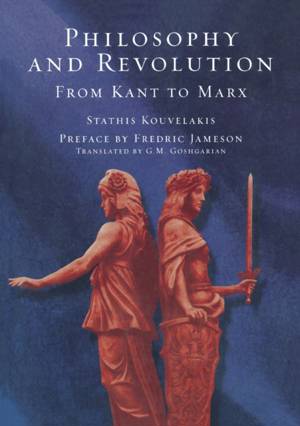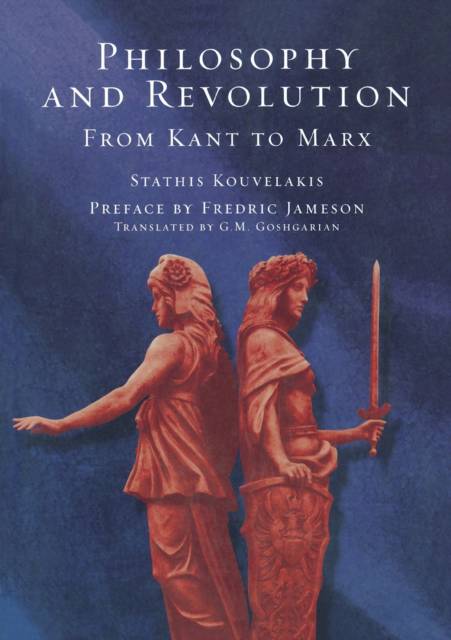
- Retrait gratuit dans votre magasin Club
- 7.000.000 titres dans notre catalogue
- Payer en toute sécurité
- Toujours un magasin près de chez vous
- Retrait gratuit dans votre magasin Club
- 7.000.000 titres dans notre catalogue
- Payer en toute sécurité
- Toujours un magasin près de chez vous
36,45 €
+ 72 points
Description
Throughout the nineteenth century, German philosophy was haunted by the specter of the French Revolution. Kant, Hegel and their followers spent their lives wrestling with its heritage, trying to imagine a specifically German path to modernity: a "revolution without revolution." Trapped in a politically ossified society, German intellectuals were driven to brood over the nature of the revolutionary experience. In this ambitious and original study, Stathis Kouvelakis paints a rich panorama of the key intellectual and political figures in the effervescence of German thought before the 1848 revolutions. He shows how the attempt to chart a moderate, reformist path entered into crisis, generating two antagonistic perspectives within the progressive currents of German society. On the one side were those socialists--among them Moses Hess and the young Friedrich Engels--who sought to discover a principle of harmony in social relations, bypassing the question of revolutionary politics. On the other side, the poet Heinrich Heine and the young Karl Marx developed a new perspective, articulating revolutionary rupture, proletarian hegemony and struggle for democracy, thereby redefining the very notion of politics itself.
Spécifications
Parties prenantes
- Auteur(s) :
- Editeur:
Contenu
- Nombre de pages :
- 450
- Langue:
- Anglais
Caractéristiques
- EAN:
- 9781859844717
- Date de parution :
- 17-03-03
- Format:
- Livre broché
- Format numérique:
- Trade paperback (VS)
- Dimensions :
- 155 mm x 206 mm
- Poids :
- 625 g







